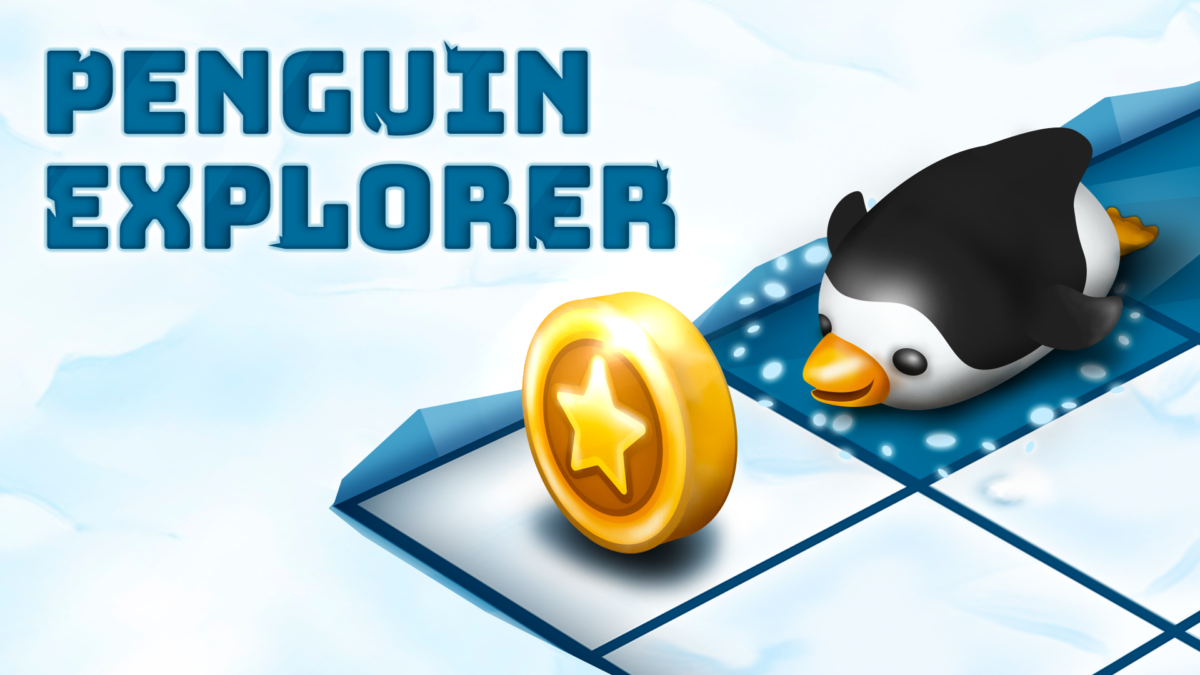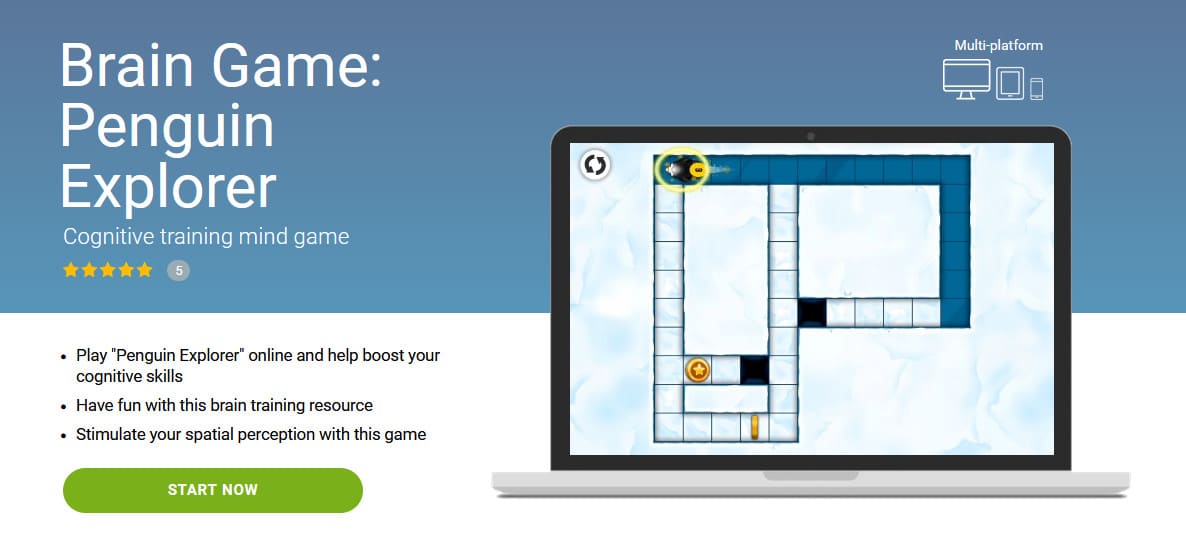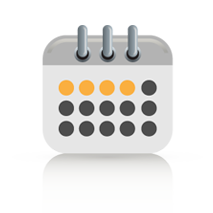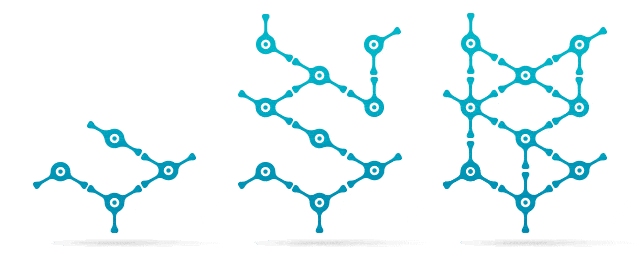
Brain Training Games: The Penguin Game
Whether you’re combating the summer heat or nestled beside a winter fire, you’ll be quite entertained playing a free penguin game. And all while training your Spacial Perception ability!
ABOUT PENGUIN EXPLORER

These penguins give you a fun and exciting way to exercise and challenge your brain. And all you need to do is help our cute little penguins do one thing. He needs to slide his way along the grid and push all the snow away.
The aim might sound simple – moving all the white powder away. However, you must move the little guy as quickly as possible while avoiding obstacles along the way to beat the Penguin Game!
And, as the game progresses, the maps get bigger and more complex. You’ll have to keep your wits about you if you want to clear the board before time runs out.
Grab the bonus coins too before they melt away, hold on tight, here we go!
 .
.
Penguin Explorer is a fun new puzzle game.
THE SCIENCE BEHIND THE PENGUIN GAME
These exciting penguin games are based on popular maze-like puzzles. But did you know they have a long history dating back over 50 years?
CogniFit’s team of designers developed this Penguin Maze Explorer as a fun twist on this popular genre and created something special. It not only challenges your special perception like typical maze games but also flexes inhibition and planning cognitive abilities.
Let’s take a look at these important cognitive abilities that our penguin games help stimulate:
Spatial Perception

Spatial perception is the ability to be aware of your relationships with the environment around you (exteroceptive processes) and with yourself (interoceptive processes).
The first process (exteroceptive) creates representations about our “space” through feelings. Second, our interoceptive processes create representations about our bodies. Such as its position or orientation.
Both of these processes are important for our everyday lives. Imagine, for example, you’re looking for your keys. You know they’re on the table, but you can’t see them. In this case, you need to use your spatial perception to try and find them.
Or take another example, such as getting dressed in the morning. Penguins don’t have to get dressed but we do. Here you need to be aware of how your clothes relate to your body (interoceptive process). For example, putting a shirt on typically goes over your head (exteroceptive process) and then your arms go through the sleeves (interoceptive process).
Finally, research shows that people with better spatial perception skills tend to have an easier time solving problems. They can also complete tasks more quickly! How fast can you complete the penguin game once it starts getting harder?
“Space” is what surrounds us: objects, elements, people, etc. It also makes up part of our thinking and “joins” all of our experiences. In order to get proper information about the characteristics of our surroundings, we use these two vital systems.
Inhibition

Inhibition is the ability to control your impulses and resist the urge to act on them. We use it all the time in our everyday lives, especially when we need to concentrate or pay attention to something.
Inhibition is one of our most used cognitive functions. It is how the brain corrects behavior. Also, this is what helps us to stay quiet when we know we shouldn’t say something. It helps us stay quiet when we are in class. Or allows us to resist road rage when someone merges into our lane without using their blinker.
When we’re bored from work, Inhibition makes us stay on track. You are in control of the penguins in the penguin game and they will go where you push them.
Trying to think of the right thing to say in a conversation? That’s your prefrontal cortex at work, inhibiting the urge to blurt out something inappropriate. Preplanning what you’re going to wear to that big meeting tomorrow? That’s inhibition too, keeping you from leaving the house wearing your pajamas!
For example, have you ever been in a meeting and had the urge to check your phone? Or maybe you’ve been at a restaurant and had the urge to get up and leave? In both cases, you needed to use inhibition to resist those urges and stay focused on what you were doing.
People with good inhibitory control skills tend to be better at self-regulation. They’re also more likely to be successful in school and in their careers. So if you want to be successful, you need to train your brain to have good inhibitory control!
Planning

This ability is a fundamental cognitive skill that forms part of our “Executive Functions”.
It’s what allows us to “think about the future”. It lets us mentally anticipate the right way to carry out a task or reach a specific goal. It’s the mental process that allows us to choose the necessary actions to reach a goal, decide the right order, assign each task to the proper cognitive resources, and establish a plan of action.
Planning is the ability to think ahead and make decisions about what you’re going to do. It’s an important cognitive ability because it allows us to set goals and achieve them.
For example, imagine you’re planning a trip. You need to decide where you’re going, when you’re leaving, how you’re getting there, and what you’re going to do when you get there. If you don’t plan ahead, your trip will likely be a disaster!
People who are good at planning tend to be more organized and efficient. They can also better handle unexpected events because they’ve already thought about what they would you want to improve your cognitive skills?
There are many ways to do so, but one of the best ways is by playing brain-improving games. Games that challenge your spatial perception, inhibitory control, and planning skills can help improve your cognitive abilities. And the best part is that you can have fun while you’re doing
Dr. Adam Gazzaley is a neurologist and cognitive scientist who has published research on planning and cognitive function along with the neurological networks associated. He is the founding director of the Neuroscience Imaging Center at UCSF, and he is also a professor there.
These studies show that good planning skills are related to better cognitive function overall. He has also found that people who are good at planning are more successful in school and in their careers.
The Doctors research shows that games that challenge your spatial perception, inhibitory control, and planning skills can help improve your cognitive abilities.
Does the Penguin Game Improve These Skills?
These penguin games are great examples of ways to improve your brain game performance while learning about your spatial perception and other cognitive skills. In the game, you need to find all of the pathways and race to get the golden coins before they disappear. This requires you to pay attention to your surroundings and use your spatial perception to try and find them.
The Penguin Game helps improve these skills by providing a fun and challenging environment that requires you to use your spatial perception, inhibitory control, and planning skills. By playing the game, you can improve your cognitive abilities while also having a great time!
HOW TO PLAY PENGUIN GAME

This Penguin Game is a deceptively simple puzzle game. Move the penguin up, down, left, or right along the paths. As he slides, he will clear snow from each tile he crosses.
But even penguins, who live in the ice and snow, have trouble stopping on the ice. Each time you move, the penguin will travel along the path until they run into a wall. So, be careful to not sent him into one of the many obstacles on the board!
Try to clear the board as quickly as possible and collect treasures along the way for bonus points!
Penguin Explorer is a great game for people of all ages. It’s a perfect way to spend some free time and it’s also good for your brain! This game can help improve your spatial perception, inhibitory control, and planning skills. Give it a try today!
CONCLUSION
Playing games like CogniFit’s Penguin Explorer stimulates a specific neural activation pattern. Repeatedly playing and consistently training this pattern helps neural circuits reorganize and recover weakened or damaged cognitive functions.
The progressive challenge of these penguin games offers a glimpse into brain training so download this free brain game on the app store and give it a shot.
Now seems like a perfect time to play this fun and exciting puzzle game! And, if you have any comments or suggestions, we would love to hear from you!
How far can you get before freezing out? Click to Play – Penguin Explorer.

Disclaimer: CogniFit’s cognitive training and assessment tools are designed to promote cognitive stimulation and mental engagement. They are not intended to diagnose, treat, or prevent any medical condition. All information presented here is for educational and informational purposes only and should not replace professional healthcare advice.
The information in this article is provided for informational purposes only and is not medical advice. For medical advice, please consult your doctor.














